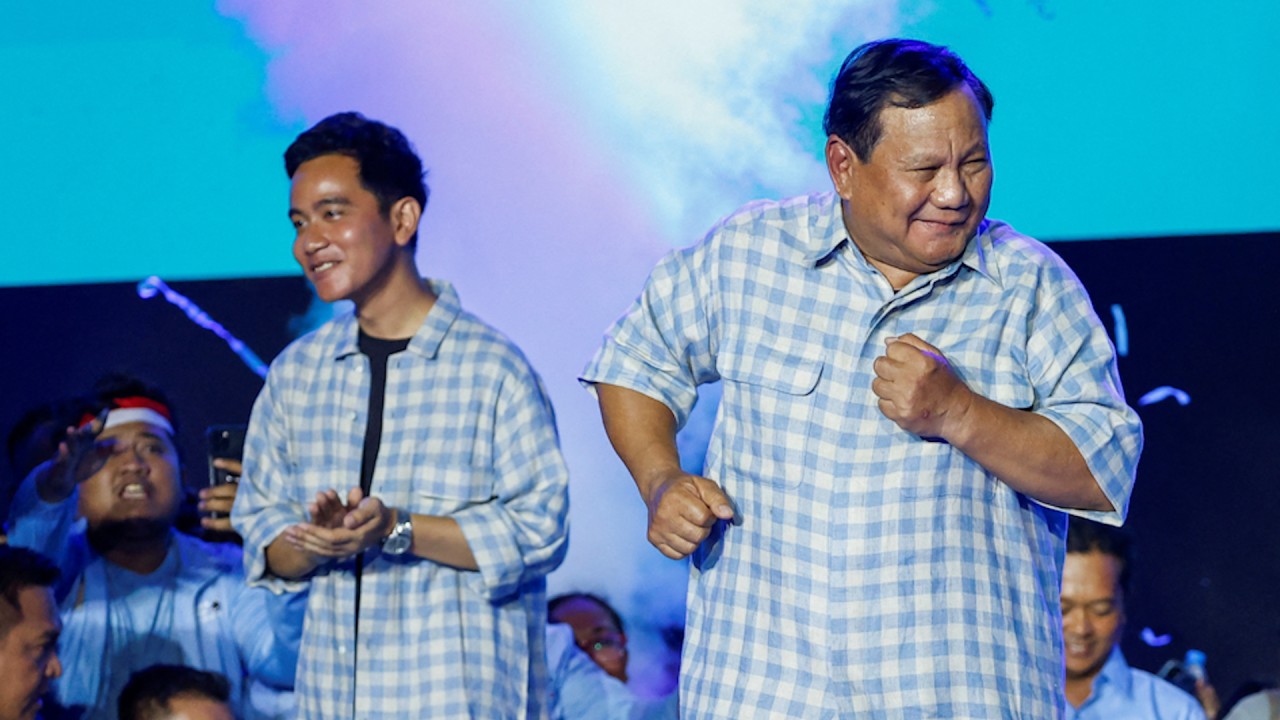“This is proof [Widodo] is indeed a very popular president, so he can influence the election,” said Made Supriatma, researcher at the ISEAS-Yusof Ishak Institute in Singapore.
PDI-P’s presidential candidate, former Central Java governor Ganjar Pranowo, earned just 16.7 per cent of Wednesday’s vote, languishing behind opposition candidate Anies Baswedan, who received 24.8 per cent.
But Made said Widodo’s enormous popularity – with an approval rating of nearly 80 per cent in December – was so strong that most voters were willing to overlook those issues.
He has also been accused of using state instruments to promote Prabowo’s ticket, including through the politicisation of welfare benefits to the poor, such as staple goods that were labelled gifts from the president though they were bought with the state budget.
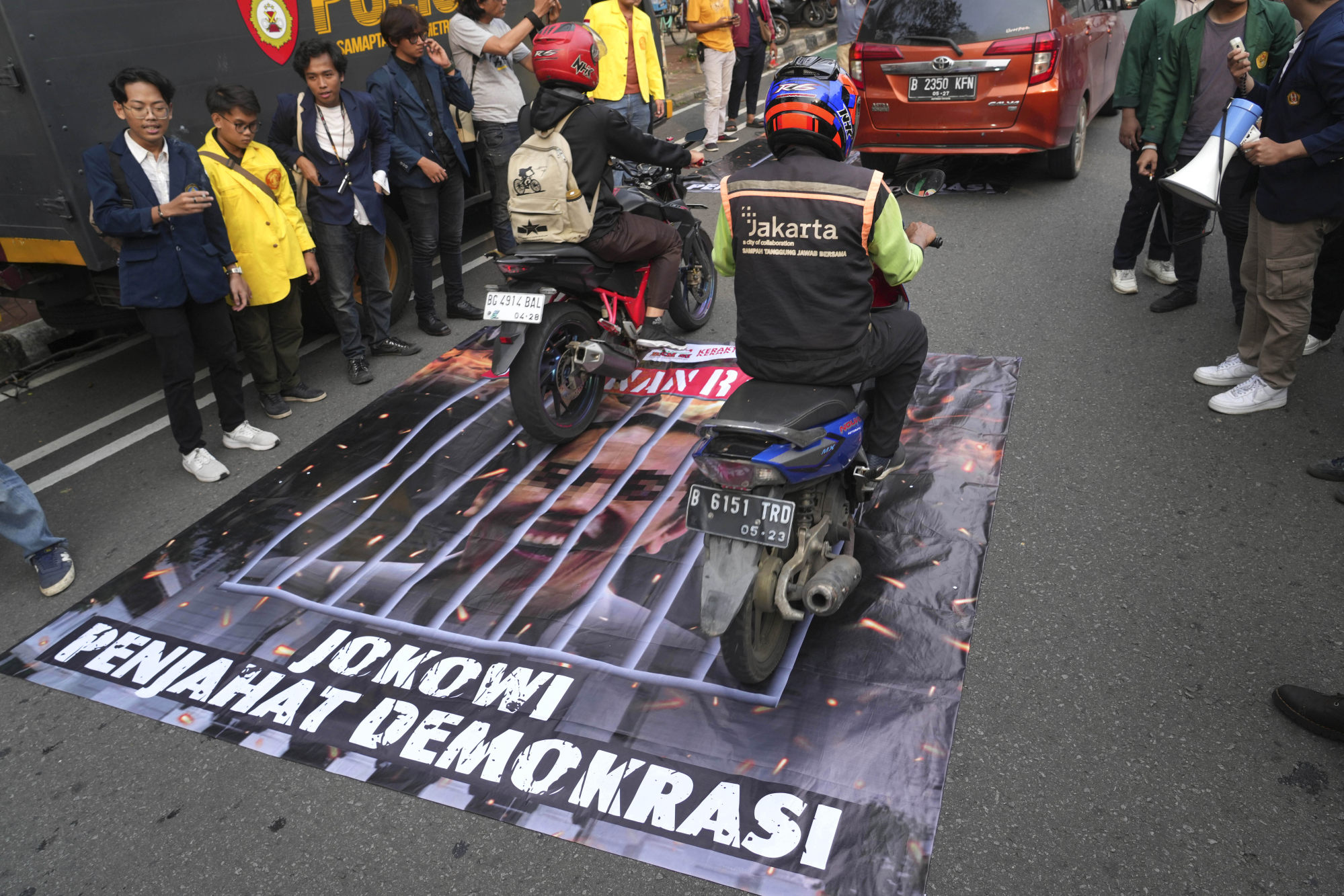
Bane or boon?
During the campaign season, Prabowo portrayed himself as a loyalist to the president, a reversal from his position as a vocal Widodo critic during his failed bids for the presidency in 2014 and 2019.
Indonesia urged to probe causes of illegal nickel exports to China
Indonesia urged to probe causes of illegal nickel exports to China
“It is unlikely that Prabowo will do what Jokowi wants. Even if he does, at most he will only continue 20 or 40 per cent of Jokowi’s legacy [programmes],” said Nicky Fahrizal, a political researcher at CSIS Indonesia. “Jokowi is doing some high-level gambling.”
Ian Wilson, an Indonesian politics researcher and lecturer at Australia’s Murdoch University, predicts that Widodo might have a plan, pointing to speculation that Prabowo would only be president for two years due to declining health.
“As a president, Prabowo can do whatever he wants, and the idea that Jokowi will be safe is a naive assumption. But I also assume Jokowi has got some plan up his sleeve,” Wilson said.
“The presidency is a draining role. If Prabowo only [manages to be a president] for two years and he can’t handle it, then [Widodo’s] son will become the president and Widodo is in the box seat. A lot of that is possible.”
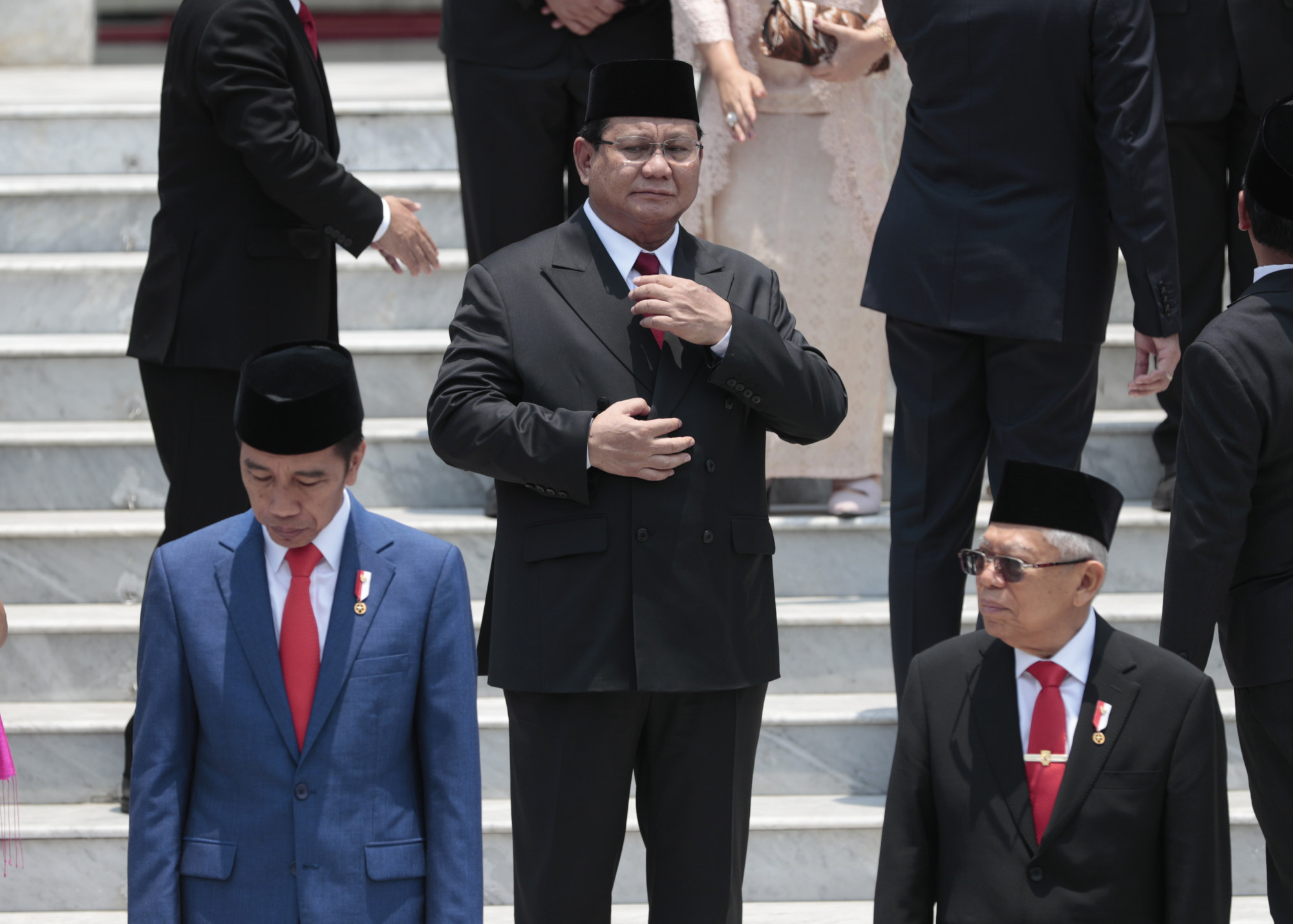
Ahmad argues that Prabowo is likely to revisit some of Widodo’s foreign policies since the former general dreams of Indonesia playing a bigger role on the international stage.
“Jokowi’s relationship with Prabowo is actually up and down in several ways. There are several statements made by Prabowo, for example, which imply that he does not really agree with Jokowi’s foreign policies, as he wants Indonesia to have a stronger position in international politics,” Ahmad said.
Indonesia election: is Jokowi’s ‘partiality’ for Prabowo a double-edged sword?
Indonesia election: is Jokowi’s ‘partiality’ for Prabowo a double-edged sword?
Jokowi, ‘man of deception’?
This year’s heated election also saw the country divided over Widodo’s decade of leadership, with some praising him for bringing political and economic stability to the country while others accused him of repressing and subverting democracy.
In the pursuit of securing his political future, Widodo has wrecked his image as a “man of the people”, said critics, including Made, who has long tracked Widodo’s political career.
“To me, he is now a man of deception. What went wrong with him? I will never know,” Made said.
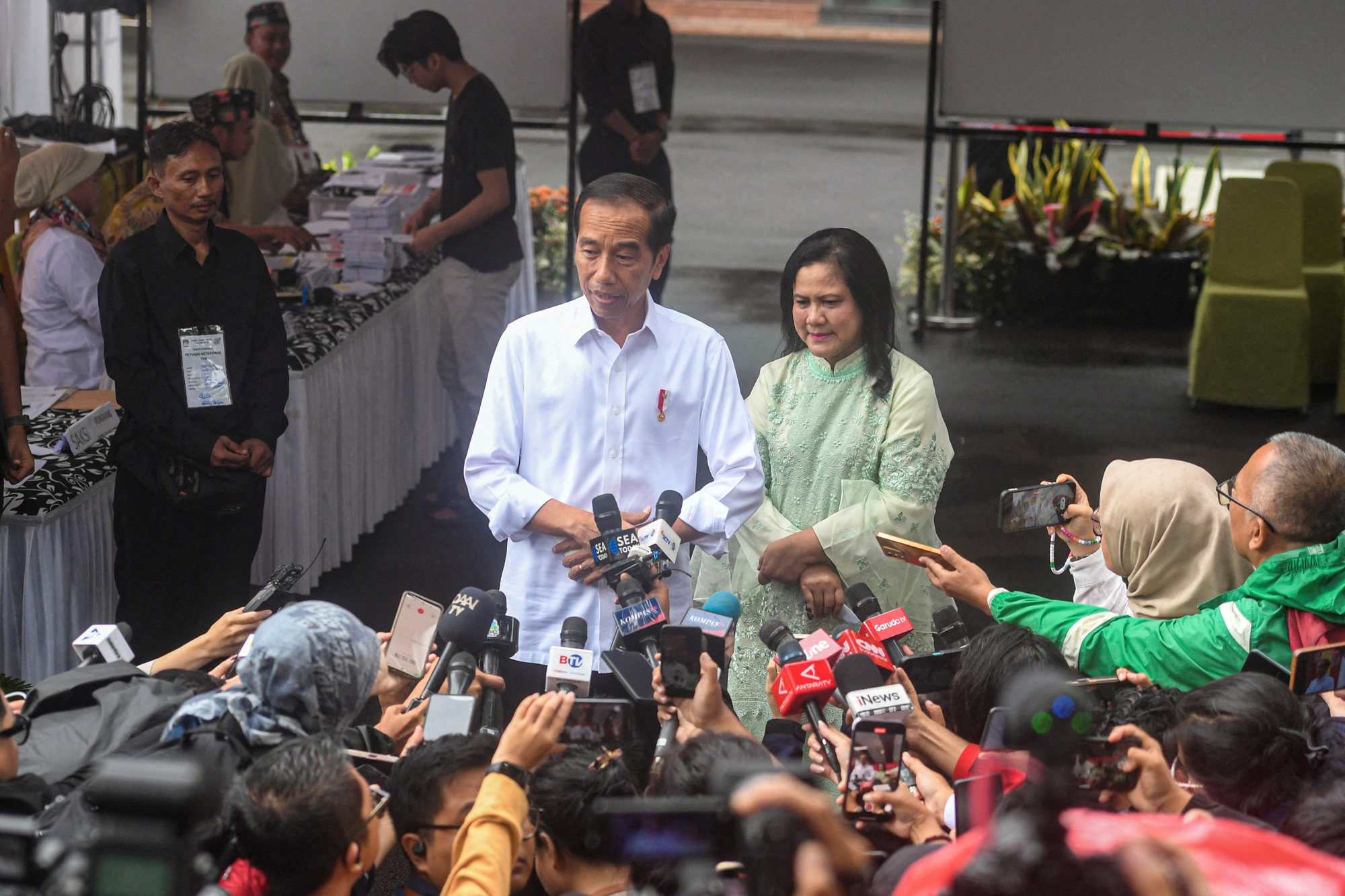
Once dubbed by Time magazine as “A New Hope” for Indonesia, Widodo was the first president of Southeast Asia’s largest economy who did not have ties to the military or Jakarta’s elite political families. He earned his income as an exporter of furniture, an entrepreneurial trait inherited by his sons – both of whom ran food-related businesses, including peddling fried bananas and running coffee shops – before they entered politics.
Widodo won his man-of-the-people image, and five elections, in large part thanks to his frequent blusukan – impromptu, informal visits – during which he mingled with voters in places snubbed by elites, such as traditional markets and rice fields. He captured the attention of young voters by attending the heavy metal concerts of bands such as Metallica, taking selfies with his supporters, and posting about his daily life with his grandchildren on Instagram.
The appeal of Joko Widodo – president, everyman
The appeal of Joko Widodo – president, everyman
Upon becoming president, Widodo quickly learned that political compromises were key to taming his opponents. He managed to lure opposition parties into his own expansive coalition and staffed his administration with ex-generals who were close to the dictator Suharto, chief among them Luhut, a top minister tasked with boosting China’s investments in Indonesia.
“There is no opposition in Indonesia, not because they’ve been banned, but because they’re being co-opted into a vast menagerie of deals and negotiations by Jokowi,” Wilson said.
Jokowi’s coalition parties occupy 471 seats in the parliament, or 81.9 per cent of total 575 seats.
Dynastic dealings
Widodo’s family is now considered by many to be a nascent political dynasty.
His eldest son Gibran is VP-elect while his other son, Kaesang Pangarep, 29, is chairman of the Indonesia Solidarity Party, which did not pass the vote threshold to win parliamentary seats during Wednesday’s election but has made inroads among the country’s young voters with its progressive policy platform.
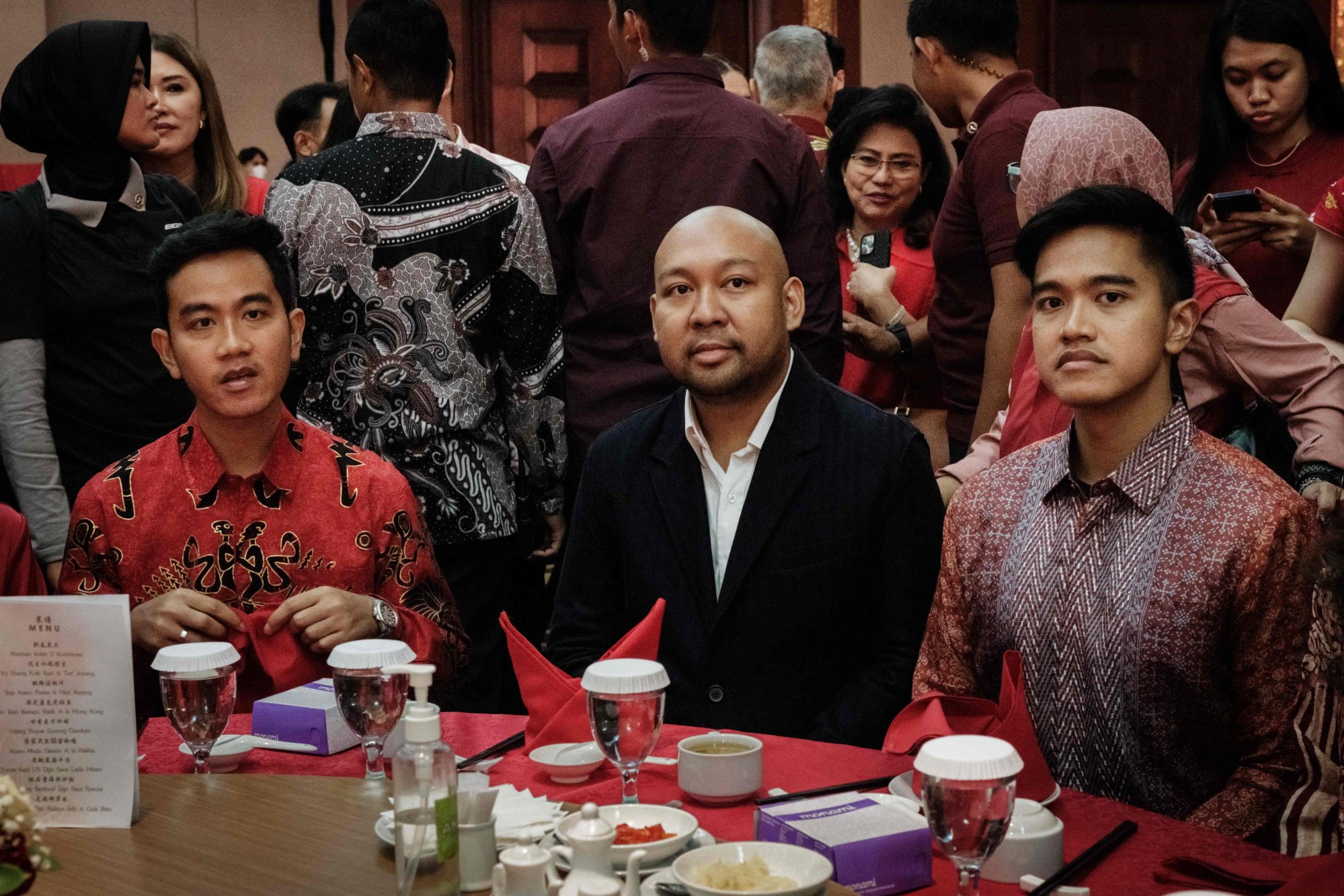
Bobby Nasution, Widodo’s son-in-law, is reportedly seeking to run in North Sumatra’s next gubernatorial election, a leap from his current position as mayor of Medan.
Made of ISEAS said Jokowi is also likely to demand “concessions” from Prabowo, specifically positioning one of his sons to lead Jakarta. The capital remains financially attractive: it has a regional budget of over 100 trillion rupiah, far more than the 27 trillion rupiah allocated to Central Java or the 35 trillion rupiah for West Java.
“I predict that Jokowi envisions Kaesang becoming governor of Jakarta. If he is not old enough, Gibran will step in and take charge of Jakarta [as a vice-president]. Ironically, Jokowi created the new capital city, but actually his eyes are on Jakarta because he knows this is where the power is,” Made said.
While Widodo’s pragmatic approach has created a stable political climate – and steady economic growth averaging 5 per cent annually – critics say democracy and human rights have regressed under his leadership, undoing the nation’s progress since it became a democracy in the late 1990s.
‘Trauma’ of stateless Indonesian-Chinese in Suharto era relived in new book
‘Trauma’ of stateless Indonesian-Chinese in Suharto era relived in new book
In his victory speech on Wednesday night, Prabowo gave a shout out to Suharto, whom he “knows very well as I often had lunch with him”. Hundreds in the audience cheered at the mention of the late dictator, as well as the sight of his daughter Titik, to whom Prabowo was married for 15 years.
“For people who are politically literate, they would say that in the last five years our democracy has not been very good. But for society in general, it’s better not to starve first. Then they would consider [progress in] politics and law enforcement.”


